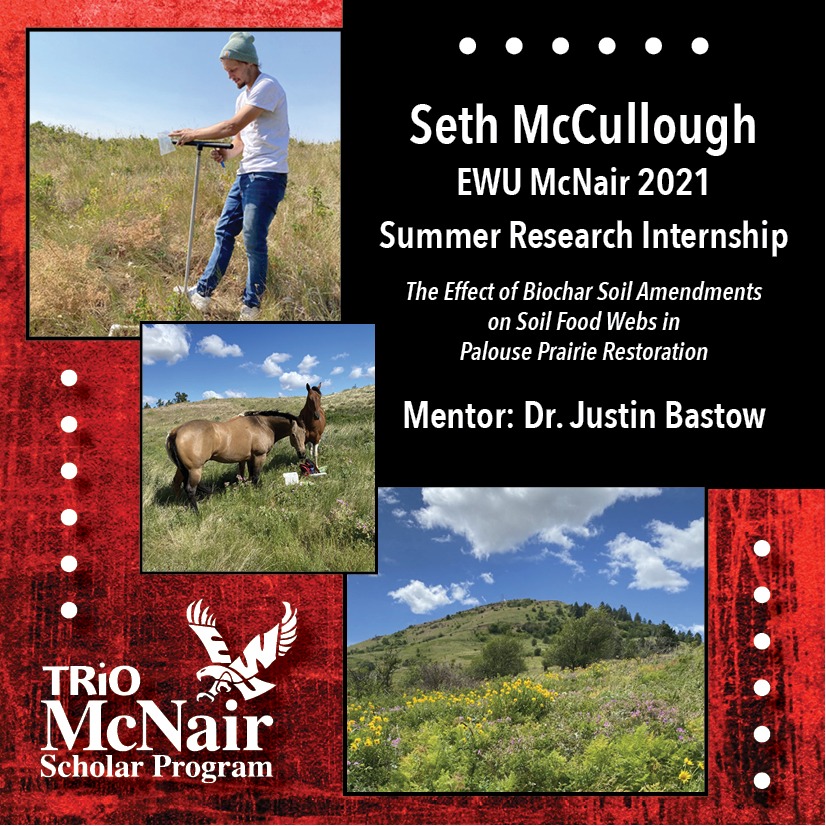 EWU McNair Scholar Seth McCullough worked with Dr. Justin Bastow in his Summer Research Internship focused on The Effect of Biochar Soil Amendments on Soil Food Webs in Palouse Prairie Restoration. The internship prepared him for graduate school by providing field researcher experience, wet lab skills, and communication skills, all of which are necessary for success at the graduate level. He learned how to develop his own research project, generating and addressing specific questions and hypotheses. Seth hopes that the results from his research will help with future decision-making surrounding EWU’s prairie restoration project. His results can also be used as baseline data to track the efficacy and progress of EWU’s restoration project in the long-term.
EWU McNair Scholar Seth McCullough worked with Dr. Justin Bastow in his Summer Research Internship focused on The Effect of Biochar Soil Amendments on Soil Food Webs in Palouse Prairie Restoration. The internship prepared him for graduate school by providing field researcher experience, wet lab skills, and communication skills, all of which are necessary for success at the graduate level. He learned how to develop his own research project, generating and addressing specific questions and hypotheses. Seth hopes that the results from his research will help with future decision-making surrounding EWU’s prairie restoration project. His results can also be used as baseline data to track the efficacy and progress of EWU’s restoration project in the long-term.
Seth experienced a unique challenge due to COVID-19 protocols: all of the doors were locked to the science buildings, with no professors on campus. To navigate these challenges, Seth learned to pre-plan extensively before sampling events, making sure he had access to all of the equipment he would need. In doing so, he developed strong communication and networking skills by contacting the many people required to gain access to the proper rooms in the science building.
Putting his research experience and findings in his own words, Seth says:
I learned the importance of understanding community composition when working on restoration projects. I learned about how below ground food-web composition can influence above ground productivity. Regarding my specific research, I found that biochar soil amendments significantly increased nematode abundance, soil moisture retention, and pH within the soil at EWU’s prairie restoration project. Soil moisture retention and pH levels increased to conditions similar to what is found at local prairie remnants. Nematode functional group composition did not shift to being similar to the functional group composition that is found at local prairie remnants, suggesting that community structure changes on a large time scale compared to soil abiotic properties.
His next step is completing the manuscript for his research to submit for publication. Since working on soil food-webs he has become more concerned with how below ground and above ground food-webs influence one another and how they are connected. This research also sparked his interest in studying how top-down control can influence the community composition within an ecosystem.
To undergraduate researchers in similar fields, Seth recommends taking advantage of all the opportunities that come your way. He offers a reminder to stay passionate about your research, and apply for any research positions or internships that you can. They are invaluable learning opportunities that give you a competitive edge in the graduate school market.

